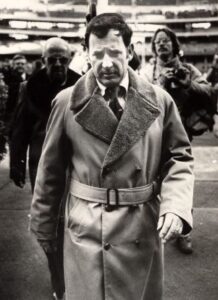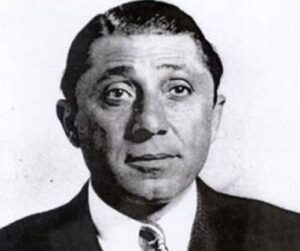Few figures in the annals of criminal history have embodied the cunning audacity and moral bankruptcy of John Factor, infamously known as “Jake the Barber.” While his brother, Max Factor, achieved fame as a cosmetics mogul, Jake carved out a legacy as a master swindler who left ruin and devastation in his wake. For over four decades, he spun a web of deceit spanning continents, all in pursuit of wealth and power – no matter who got hurt along the way.
Born Lakow Factrowitz into a modest immigrant family, Jake displayed an early knack for deception. By the 1920s, he had honed his skills in fraudulent schemes ranging from fake stocks to real estate scams, leaving a trail of bankrupt investors from Europe to North America. His most notorious feat? A brazen stock swindle in England that duped thousands of investors—possibly even members of the British royal family—out of millions. Promising returns of up to 12% when bank interest rates hovered around 1-2%, Jake preyed on greed and gullibility to accumulate a fortune.

When the heat turned up, Jake fled England with a staggering $8 million, arriving in the U.S. under false pretenses. But his knack for manipulation ensured he wouldn’t face justice easily. Jake had powerful friends in high places—or, more accurately, in dark corners. He was closely connected to the infamous Chicago Outfit, including Frank Nitti and Al Capone. It was these ties that paved the way for his most outrageous stunt: a staged kidnapping.

In 1933, facing extradition to Britain, Jake devised a scheme so audacious it’s almost laughable. With the help of the Outfit, he orchestrated his own “abduction” from a Chicago suburb. The plan? Accuse rival gang members of the crime and buy time to evade deportation. Jake’s son, Jerome, had mysteriously been “kidnapped” earlier that year, a bizarre coincidence that raised eyebrows. Rumor has it Jake himself penned the ransom note for his son’s supposed captivity—a dress rehearsal for his own staged disappearance.
As Jake “disappeared,” the alleged kidnappers—innocent men from the North Side Gang—found themselves scapegoated. One of them, Roger Touhy, became the ultimate fall guy, spending decades behind bars for a crime he didn’t commit. Despite mounting evidence of his innocence, Touhy’s release in 1959 was short-lived; he was assassinated just 25 days later, likely on Jake’s orders to protect his “reputation.”
In 1933, facing extradition to Britain, Jake devised a scheme so audacious it’s almost laughable. With the help of the Outfit, he orchestrated his own “abduction” from a Chicago suburb. The plan? Accuse rival gang members of the crime and buy time to evade deportation. Jake’s son, Jerome, had mysteriously been “kidnapped” earlier that year, a bizarre coincidence that raised eyebrows. Rumor has it Jake himself penned the ransom note for his son’s supposed captivity—a dress rehearsal for his own staged disappearance.
Jake’s knack for reinvention didn’t stop there. After his staged kidnapping bought him time to evade extradition, he resurfaced in Los Angeles, sinking his ill-gotten gains into real estate ventures. By the 1940s, he was back to his old tricks, landing a 10-year sentence for mail fraud involving $10 million. Upon his release, Jake became the Outfit’s frontman at the Stardust Casino in Las Vegas, skimming millions from its revenues and cementing his role as one of organized crime’s most cunning operators.

Incredibly, Jake managed to dodge deportation again in 1962, this time with the help of a presidential pardon. Speculation swirled that his hefty donations to John F. Kennedy’s campaign played a role in his clemency—proof that even in his twilight years, Jake knew how to leverage money and influence to his advantage.
From fake kidnappings to fraudulent schemes and mob connections, John Factor’s life was a masterclass in manipulation. But behind the glamour of his ill-gotten fortune lies a darker truth: countless lives ruined, innocent men imprisoned, and a trail of destruction that spanned decades. Jake the Barber may have escaped justice time and again, but his legacy stands as a stark reminder of how far one man would go to succeed, no matter the cost.
Penned by the Infamous C.F. Marciano – A Name You Don’t Forget.

